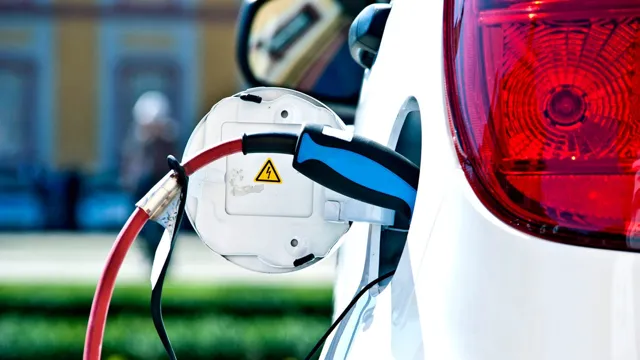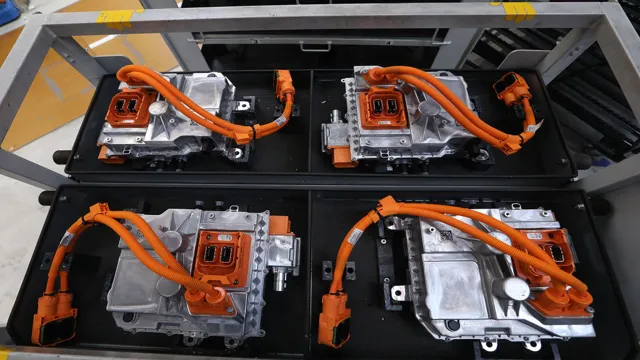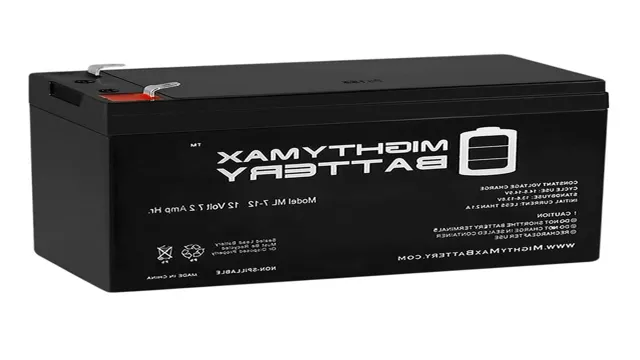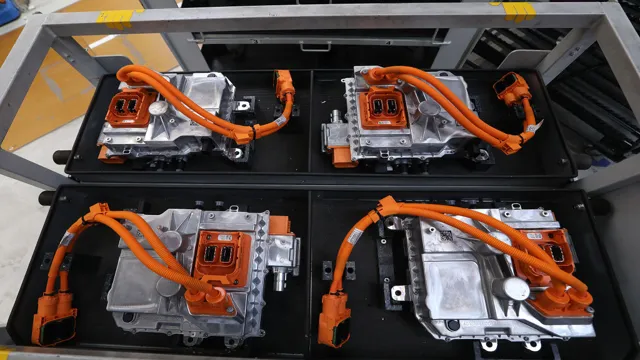Revolutionizing the Future of Green Transportation: 2 Fuel Cell Cars with Electric Car Batteries
As the world becomes increasingly conscious about reducing carbon emissions and preserving the environment, the demand for fuel cell cars with electric battery is rapidly rising. These innovative cars combine the benefits of both fuel cell and battery technologies to create a highly efficient, eco- friendly driving experience. Although the concept of fuel cell cars may sound futuristic to some, it is rapidly becoming a popular choice for those looking for sustainable and efficient transportation.
So, what exactly are fuel cell cars with electric batteries and why are they becoming more and more popular among drivers? Let’s delve deeper into this fascinating technology and explore how they work.
Overview
It may come as a surprise to some, but there are two fuel cell cars currently on the market that also have electric car batteries. These cars, the Toyota Mirai and the Hyundai Nexo, combine the benefits of both fuel cell technology and battery electric vehicles (BEVs). While fuel cell cars produce electricity through a chemical reaction between hydrogen and oxygen, BEVs rely solely on stored electric energy to power their motors.
By combining the two technologies, these cars are able to have increased range and more reliable energy sources. The battery also allows for regenerative braking, which captures kinetic energy during braking and stores it for later use. While still relatively new to the market, these cars are proving to be a promising step towards a cleaner and more efficient transportation future.
What are fuel cell cars?
Fuel cell cars are a type of vehicle that use hydrogen gas as fuel to power an electric motor. These vehicles operate in much the same way as battery-electric cars, but instead of drawing power from an electric battery, they produce electricity on board through a process known as electrolysis. The hydrogen gas is stored in special tanks and then passed through a fuel cell stack, which combines the hydrogen with oxygen from the air to produce electricity, water vapor, and heat.
This process is highly efficient and produces zero emissions, making fuel cell vehicles a promising alternative to traditional gasoline-powered cars. While fuel cell cars are still relatively new and costly compared to traditional cars, they are becoming more common, and experts predict that they will play a significant role in the future of transportation as we continue to move towards a greener, more sustainable future.
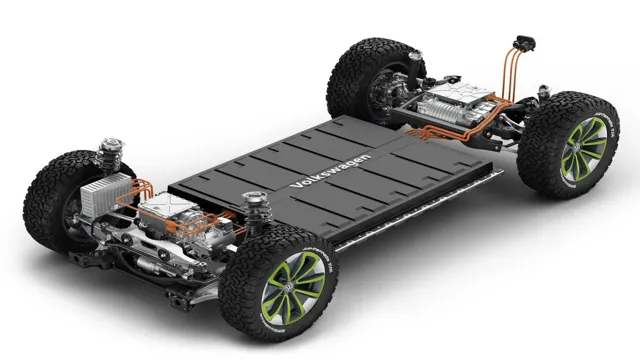
What is an electric car battery?
Electric car batteries are the heart of any electric vehicle as they provide the necessary power for the car to move. These batteries are unique in that they are rechargeable and can store a significant amount of electrical energy. The batteries use a combination of materials such as lithium-ion and nickel-metal hydride to create a large and high-capacity battery pack.
The battery pack is designed in such a way that it can deliver power to the car’s electric motor, which drives the wheels. One significant advantage of an electric car battery is that it is environmentally friendly and produces zero emissions. Moreover, it is incredibly cost-effective and requires less maintenance than traditional gasoline-powered vehicles.
As the demand for electric cars continues to grow, the development of batteries with enhanced performance and a longer lifespan is essential.
How it works
It might sound odd that two fuel cell cars have an electric car battery, but let me explain how it works. While fuel cell cars generate electricity using hydrogen and oxygen, they still need a way to store any excess energy produced. This is where the electric car battery comes into play.
The battery helps to regulate the flow of energy in and out of the fuel cell, ensuring that everything runs smoothly. Additionally, the battery can help power the car when the fuel cell is not producing enough electricity on its own. It’s like having a backup generator to ensure you always have power when you need it.
So, while it may seem counterintuitive to have a battery in a car that primarily runs on hydrogen fuel cells, it’s actually an essential part of the overall system. The combination of the two provides a reliable and efficient way to power these vehicles, making them a promising technology for the future.
Combining fuel cell and electric battery technology
Combining fuel cell and electric battery technology can offer significant advantages for powering vehicles. Simply put, a fuel cell produces electricity by chemically reacting hydrogen with oxygen, while an electric battery stores electrical energy chemically. By combining these two technologies, vehicles can benefit from both their strengths.
Fuel cells provide high power output and longer ranges, while batteries offer quick acceleration and regenerative braking capabilities. The integration of fuel cells and batteries is achieved through a power control unit, which manages the flow of electricity between the two technologies. This combination has already been applied in a number of prototype vehicles, including buses and cars, and its potential for widespread adoption continues to be explored.
Benefit of hybrid technology in cars
The benefit of hybrid technology in cars cannot be underestimated. It is an innovative system that combines traditional gasoline engines with electric motors to maximize efficiency and minimize fuel consumption. But how does it work? Well, when the vehicle is in motion, the gasoline engine provides the primary power, while the electric motor assists in acceleration and can even take over the function of the gas engine when traveling at low speeds.
The electric motor is powered by a battery that is charged by the gas engine or through regenerative braking, which harnesses energy during braking. This hybrid technology also shuts off the gas engine when the car is idle or coasting, which eliminates wasted fuel and reduces harmful emissions. The synergy between both of these power systems results in a car that is both environmentally friendly and cost-effective.
It’s no wonder that hybrids have become increasingly popular in recent years, as they offer the best of both worlds – the range of a gas engine and the fuel economy of an electric motor.
Advantages
Did you know that fuel cell cars also have electric car batteries? It’s true! One of the main advantages of fuel cell cars is their ability to store and use excess energy in a battery. This means that they can travel further distances and provide a more reliable source of power. Fuel cell cars are also incredibly efficient, making them a popular choice for eco-friendly drivers.
Plus, they emit only water vapor, so they are a great alternative to traditional gasoline-powered vehicles. Overall, the use of electric car batteries in fuel cell cars is just one of the many benefits of this innovative technology. So, if you’re looking for a sustainable and reliable option for transportation, be sure to consider a fuel cell car with an electric car battery.
Reduced dependence on fossil fuels
Reduced dependence on fossil fuels is a crucial aspect of ensuring a sustainable future for society. There are numerous advantages to achieving this goal. For starters, reducing our dependence on fossil fuels means reducing greenhouse gas emissions.
This is good for the environment and helps mitigate the effects of climate change. Additionally, reducing our reliance on fossil fuels can lead to greater energy security. By diversifying our energy sources, we can ensure that we are not overly dependent on any one fuel or any one supplier of fuel.
Furthermore, achieving this goal can lead to the creation of new jobs and industries. As we transition to cleaner forms of energy, we will need workers to design, build, and maintain the infrastructure that supports these technologies. Ultimately, reducing our dependence on fossil fuels is essential for building a more resilient, sustainable, and prosperous world for ourselves and future generations.
Less harmful emissions
Advantages of less harmful emissions are numerous and far-reaching. Firstly, it helps in reducing air pollution and its harmful effects on humans and the environment. With fewer emissions of harmful gases like carbon monoxide, nitrogen oxide, and sulfur dioxide, it reduces the risk of respiratory and other related diseases in individuals.
Additionally, it helps in combating climate change by reducing the amounts of greenhouse gases released into the atmosphere. Therefore, it contributes significantly to the preservation of the environment. Moreover, it helps in reducing the dependence on non-renewable sources like fossil fuels.
By adopting cleaner sources of energy, there is an increase in the utilization of renewable sources like solar and wind energy. This, in turn, helps in reducing the carbon footprint and improves the overall environmental health. In summary, reducing harmful emissions offers many advantages, including healthier environments for people and stronger and more sustainable economies.
Challenges
Fuel cell cars are becoming increasingly common as automakers look for more sustainable alternatives to traditional combustion engine vehicles. Two notable fuel cell cars on the market today, the Toyota Mirai and the Honda Clarity, actually utilize electric car batteries to complement their fuel cell technology. This complementary approach allows for extended driving range and increased efficiency, while also addressing concerns around the limited availability of hydrogen refueling stations.
While these cars may seem like a promising solution, there are still challenges to overcome, such as the high cost of production and materials needed for fuel cells, as well as the need for a more extensive hydrogen refueling infrastructure. As with any new technology, it will take time and investment to expand the use of fuel cell cars and overcome these challenges. However, with continued innovation and investment, they have the potential to play a significant role in sustainable transportation in the future.
Limited availability and high cost
When it comes to renewable energy, limited availability and high cost are among the biggest challenges. Many people are aware of the benefits of using renewable energy sources such as solar, wind, and hydropower. However, these sources can be limited in some areas, especially in places with low wind speeds or limited sun exposure.
Additionally, the cost of installing and maintaining renewable energy systems can be very high, which can make it difficult for individuals and businesses to justify the switch. Nevertheless, the good news is that these challenges are not insurmountable. With advances in technology and government incentives, it is becoming increasingly possible for more people to take advantage of renewable energy options.
As we continue to explore ways to make renewable energy more accessible and affordable, we can move towards a more sustainable future for all.
Lack of infrastructure for fuel cell cars
When it comes to fuel cell cars, one of the biggest challenges we face is the lack of infrastructure. Unlike gas-powered cars that have gas stations readily available, fuel cell cars require specialized hydrogen refueling stations, and there are currently not enough of them. This is a significant barrier for the widespread adoption of fuel cell cars since people won’t want to invest in a vehicle that they can’t easily refuel.
Moreover, building hydrogen refueling stations is expensive, and it requires collaboration between automakers, governments, and hydrogen supply chains. However, despite these challenges, there is still progress being made. Countries like Japan, the US, and Germany are investing heavily in the development of hydrogen refueling infrastructure.
Furthermore, several automakers are partnering with governments and private companies to build more hydrogen stations. So, while the lack of infrastructure is a genuine challenge, it’s not insurmountable, and we can expect to see more progress in the coming years.
Future of fuel cell cars with electric battery
Two fuel cell cars incorporating electric battery are making waves in the automotive industry, ushering in the future of sustainable transportation. The Toyota Mirai and Hyundai Nexo both feature fuel cells that generate electricity to power the vehicle, along with an additional electric battery for enhanced performance. This innovative approach provides the benefits of both hydrogen fuel cells and electric batteries, including zero emissions, fuel efficiency, and quick acceleration.
These cars are paving the way for a more sustainable future, showing that it’s possible to drive eco-friendly vehicles without sacrificing performance. As more automakers explore this technology, we can look forward to a world where fuel cell cars with electric battery are the norm, helping to reduce air pollution and mitigate our impact on the environment.
Conclusion
In the world of alternative energy sources, fuel cell cars and electric cars are often seen as competitors. However, the truth is that these two types of vehicles can actually complement each other. By incorporating a fuel cell into an electric car battery, car manufacturers can create a hybrid vehicle that boasts the best of both worlds – the efficiency and sustainability of fuel cell technology, and the practicality and convenience of electric car batteries.
It’s like having your cake and eating it too, except in this case, the cake is a car, and it’s powered by innovative technology.”
FAQs
What is a fuel cell car?
A fuel cell car is a vehicle that uses hydrogen fuel to generate electricity to power the electric motor.
How does a fuel cell car work?
A fuel cell car works by combining hydrogen gas with oxygen from the air to produce electricity and heat. The electricity powers the electric motor, and the heat is released as water vapor.
How is a fuel cell car different from a traditional electric car?
Fuel cell cars and traditional electric cars both use electric motors to power the vehicle, but fuel cell cars generate their electricity on board using hydrogen fuel cells, while electric cars rely on stored energy in a battery.
What is the range of a fuel cell car?
The range of a fuel cell car varies depending on the make and model, but they typically have a range of around 300 miles on a single tank of hydrogen fuel.

